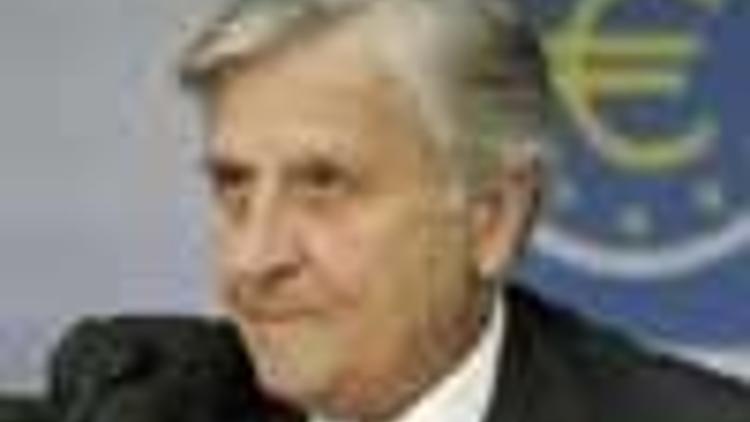ECB shocks market with smaller than expected rate cut
Güncelleme Tarihi:

The European Central Bank shocked financial markets by cutting its main interest rate by a smaller-than-expected 25 basis points on Thursday, taking it to a new low of 1.25 percent.
It also lowered its overnight deposit rate -- the rate currently setting the floor in money markets -- by 25 points, taking this down to just 0.25 percent.
The vast majority of analysts polled by Reuters had expected the rate-setting Governing Council to cut the main refinancing rate by 50 basis points.
The euro extended gains against the dollar on the decision and euro zone government bonds and interest rate futures extended losses, with the yield on interest-rate sensitive two-year government bonds rising to a near one-week high.
"This was a surprise, it seems like a compromise and left expectations of a further rate cut still alive," said Dresdner Kleinwort economist Rainer Guntermann. "It was a disappointment that the ECB Governing Council did not find a more decisive reaction."
Others were also taken aback. "It sends the signal that they don't mean business and continue to be behind the curve," said Philippe Gijsels, strategist at Fortis in
ECB President Jean-Claude Trichet will explain the surprise decision at a news conference scheduled for 1230 GMT, and is also expected to announce that the bank will begin offering longer-term funding to commercial banks in an effort to boost lending as the recession deepens rapidly.
Economists are also eager to hear if policymakers are any closer to following the U.S. Federal Reserve, Bank of Japan and Bank of England in expanding the money supply via a policy of quantitative easing, although expectations were further lowered by the decision to cut rates by only 25 basis points.
The Reuters poll also showed most analysts think the ECB will drop rates to 1.0 percent and leave them there until the end of 2010. However, 23 of the 76 respondents predicted that rates will be below that level by September.
But with borrowing costs on the money market now steered by the overnight deposit rate, focus was just as much on that rate. Analysts had expected a cut to 0.25 percent given the ECB's reluctance to reduce rates too far.
Deep recession
The ECB has now cut its benchmark rate six times from 4.25 percent since last October as the euro zone economy has gone from bad to worse.
The latest economic data have shown little sign of a let up in the recession, while annual inflation hit a record low of 0.6 percent in March and is expected to fall further.
Governing Council member Athanasios Orphanides said inflation was expected to be below the ECB's 2 percent ceiling due to negative economic developments.
Economic forecasts have continued to be slashed and policymakers are still feeling in the dark to pinpoint an end to the global financial crisis.
Euro zone unemployment jumped more than expected in February to 8.5 percent, while the Organization for Economic Cooperation and Development warned this week it could reach almost 12 percent in 2010.
The OECD also predicted the economy would shrink 4.1 percent this year, far more that the ECB's current worst case scenario of 3.2 percent, and lending data now show banks are reducing the supply of loans to firms and consumers.
Non-traditional measures
Many economists have also tipped the ECB to extend the maximum maturity of loans to commercial banks to a year from six months now.
Analysts also questioned whether Trichet would provide any clues that the ECB is edging towards quantitative easing measures -- printing money -- at his news conference.
"I don't expect them to say too much more on quantitative easing. They will say that all options are on the table but nothing more concrete than that," said Goldman Sachs economist Erik Nielsen.
"I don't there is a big need right now; they should get ready for it but there is also the fact there is very little they can actually buy," he said referring to laws that stop the ECB from buying debt directly from governments.

